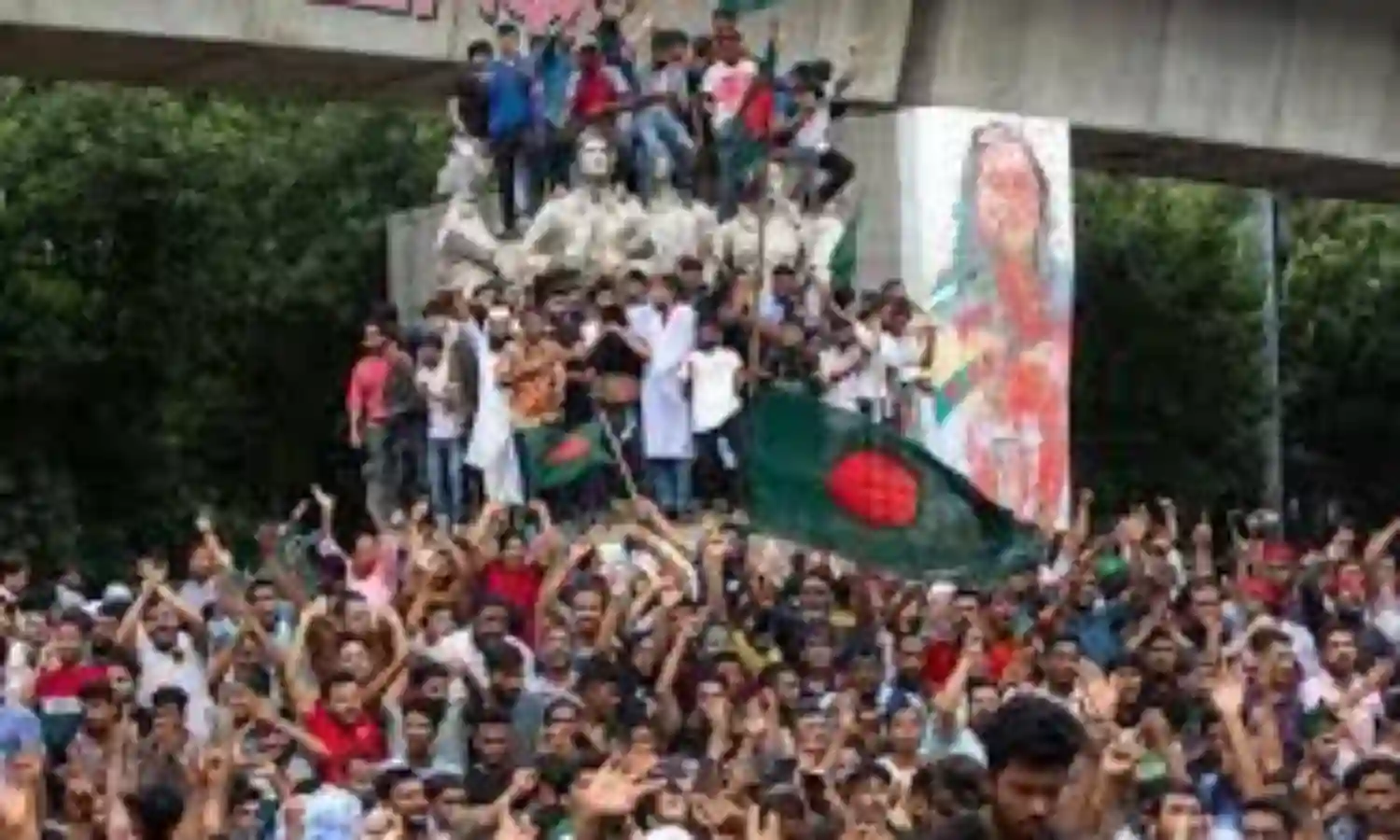Bangladesh prime minister resigns after weeks of violent protests
Protesters, seen dancing and chanting slogans against Hasina, gathered at Dhaka University campus, the initial site of the protests against the controversial public job quota system.;

Bangladesh Prime Minister Sheikh Hasina has resigned, following weeks of student violent protests that left roughly more than 300 people dead, Army chief Gen. Waker-Uz-Zaman said on Monday.
“An interim government will be formed,” the army chief told a news briefing after a meeting with leaders of different political parties, excluding those from Hasina’s Awami League party.
“Justice will be done for all those killings and atrocities, please keep confidence on the army,” he urged, calling on protesting students to remain patient and refrain from further violence.
Protesters, seen dancing and chanting slogans against Hasina, gathered at Dhaka University campus, the initial site of the protests against the controversial public job quota system.
Following news of Hasina’s resignation, numerous Awami League offices and leaders’ homes across Dhaka and other areas were attacked and looted.
Thousands of protesters stormed the prime minister’s official residence in Dhaka after she reportedly fled the country.
An official, preferring not to be named, at the foreign ministry confirmed that Hasina left for India in the afternoon.
Earlier on Monday, thousands of people again took to the streets and vowed to “march to Dhaka” to demand the resignation of the prime minister.
The violence flared up again after Saturday’s call to civil disobedience by student leaders, who rejected a government offer to end violence through dialogue.
The authorities had given in to the students’ demands to reform an unpopular job quota system, after protests in mid-July left more than 200 people dead.

